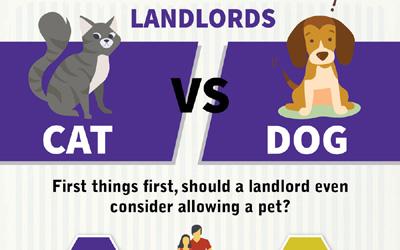The Big Picture On Should You Rent To College Students:
-
- Renting properties to college students near universities is an attractive real estate investment.
- Advantages of renting to college students include higher potential income, higher occupancy rates, co-signer safety nets, and potential property appreciation.
- Disadvantages include inexperienced renters, a high likelihood of damages, annual turnovers, extended vacancies, and fierce competition. Landlords should maximize their investments and apply certain strategies to make sure they get the most out of their real estate rentals.
Disclaimer
The information provided on this website is for general informational purposes only and should not be construed as legal, financial, or investment advice.
Always consult a licensed real estate consultant and/or financial advisor about your investment decisions.
Real estate investing involves risks; past performance does not indicate future results. We make no representations or warranties about the accuracy or reliability of the information provided.
Our articles may have affiliate links. If you click on an affiliate link, the affiliate may compensate our website at no cost to you. You can view our Privacy Policy here for more information.

One of the most common questions among real estate investors is, “Where should I buy rental properties?”
They typically mean the context of finding neighborhoods and the best cities for real estate investing. But before asking where it often helps to decide who you want to rent to. If you want to rent to college students, that means investing in college towns near college campuses.
For many investors, renting a house to students invokes images of Animal House and a feeling of dread – perhaps in recollecting your own college experiences. I certainly have to admit that my respect for other people’s property was a little lacking in those years!
There are definitely risks when you rent to college students. But renting to students also comes with its perks and pluses.
Usual Properties Rented At Or Near College Campuses
Before renting out to college students, you must know what they want. It’s essential to know your target demographic in the US, especially when they constitute 57% of the global student accommodation market.
So, here are the more common properties to rent out to college students:
| Property Type | Features |
|---|---|
| Studio Apartments | Compact, convenient for solo living |
| Shared Apartments | Multiple bedrooms, common living areas |
| Houses | Several bedrooms, shared by a group of students |
| On-Campus Dorms | Managed by the college, with various amenities |
| Off-Campus Housing | Can range from apartments to houses, often near campus |
Now that’s out of the way, here are some advantages and disadvantages of renting to college students and why you should consider it if it hasn’t been on your radar until now.
Pros of Renting a House to College Students
Despite your visions of toga parties and red Solo cups, student housing offers plenty of pros for buy-and-hold real estate investors.
1. High Demand
As long as there are universities, there is a need for student housing.
Schools can only house so many students on campus, so students inevitably look to surrounding areas. Properties within walking, biking, or short driving distance to campuses are extremely desirable.
In many college towns, there’s a shortage of off-campus housing suitable for students, so the properties that are available typically have high and continuous demand. Having this large, concentrated pool of potential renters makes marketing a breeze and drives up rents.
2. Potential for Higher Rental Income
Another huge benefit of catering your rental property to college students is the opportunity to structure your rental income a bit differently. Instead of simply charging a normal monthly rent, you can calculate the rental amount per room.
For example, say you have a 3-bedroom property that would normally rent for $1,000 a month. Rather than renting the entire house, consider renting rooms to college students at $400 per month. It generates an extra $200 each month in income, while still providing a very reasonable rate for each student that will be sharing the house.
You could have each tenant sign a lease agreement with the rent amount already divided up, effectively renting rooms to students. That leaves you chasing each student individually however.
Instead, when you rent a house to students, sign one lease agreement for the entire house. That way, all students and co-signers fall under joint and several liability: they’re all legally liable for the entire rent, even if they paid “their portion” of it.
3. Student Renters are Less Demanding
It’s easy to be picky and demanding about home updates when you don’t have to pay for them.
But college students aren’t your typical renters. When you rent a house to students, they usually don’t nitpick about the finishes not being perfectly in style or the colors matching exactly.
As a college student, cost and convenience are the two most important factors in choosing a place to rent. Student tenants often overlook your property’s shortcomings that would turn a regular renter away. Think dated bathrooms, deferred maintenance, walls that haven’t been freshly painted, and carpets with the occasional beer stain.
With college renters being less demanding, there are fewer deterrents to getting your property leased.
Granted, that doesn’t give you an excuse to be a poor landlord or take advantage of the situation. It simply means that student renters don’t expect the house to be perfect.
4. Higher Assurance of Rental Payment
Two things that college students have that most other tenants do not are parental support and loans.
How does this benefit you as the landlord?
If a normal adult tenant doesn’t have the money to pay rent, you have to chase them down to get it. Often times it ends up costing you more time and money than it’s worth, especially if you have to file eviction.
In the case of college student tenants, they will usually have financial support from their parents, or student loans, or both.
Many students’ parents pay the rent on behalf of the students. Even if they don’t you can still require the parents to sign as co-signers on the lease agreement. While that doesn’t 100% guarantee the rent, it does provide more assurance that you’ll receive rental payments on time.
Student loans can be used towards housing costs and many students opt to pay their entire lease up front when they get their disbursement, providing you with guaranteed rent for the entire term.
Both of these scenarios provide some extra income security for you and yet another potential advantage when you rent to college students.
 5. Appreciation
5. Appreciation
This next advantage has less to do with renting a house to students and more with owning a property near a university.
Many real estate investors consider long-term appreciation a major factor in buying rental properties. Properties near universities are a pretty safe bet for their value to increase over time.
Colleges are an important contributor to local economies, and vice versa; local economies and governments want to ensure they thrive. With that comes funding for projects to enhance the area, incentives for businesses to open nearby, etc.
All of these things contribute to the value of your investment property.
6. Popular Properties
Some properties can be extremely desirable for certain cliques in college, like sports teams, fraternities, sororities, or clubs. Having a continuous stream of renters that belong to the same group can do wonders to your occupancy rates.
Rent the house to members of that community once, and you may never have another vacancy.
(article continues below)
Cons of Renting a House to College Students
For all those advantages, renting to college students comes with its downsides, too.
Here’s what you should know before investing in student housing.
1. Higher Risk of Property Damage
Negligence is definitely not limited to student tenants, but with that said, it’s certainly a risk you will want to take into account.
It’s no secret that antics like keg parties, lawn games, and noise complaints are much more prone to happen when 18-22-year-olds are involved. As they learn to live independently for the first time and take care of things for themselves, there will likely be some excessive wear and tear in the process.
If the students are irresponsible with the property, you could end up paying an extensive amount in damage repairs. Not only does this add extra stress to the renting process initially, but it will always be a risk because even once one group of college kids moves out, the same exact demographic could be arriving.
2. High Turnover Rates
Personally, I moved every single year throughout my four years in college, and so did most of my friends. The reality of high turnover is a very real consequence of renting a house to college students.
There are a plethora of reasons why students change their housing plans each year, such as meeting a new friend they want to room with, needing to be closer to a certain part of campus or town, etc.
High turnover rates mean more work for you as the landlord or property manager and a higher risk of vacancies. You have to re-rent the property every single year and potentially do maintenance work like repainting, replacing the flooring, and so on.
Additionally, landlords incur their greatest labor and expenses during tenant turnovers. It takes time and money to clean up the property, advertise it for rent, collect rental applications, run tenant screening reports, sign a new lease agreement, conduct the move-in walk-through, and so forth.
 3. Tenant Screening Challenges
3. Tenant Screening Challenges
As you likely already know, tenant screening is one of the most important functions you can perform as a landlord.
Thorough tenant screening is key to a successful renting strategy and helps prevent unnecessary issues. However, screening college students can prove to be difficult due to the fact that there isn’t much to screen.
If they even have a credit score, it’s probably low, which doesn’t necessarily mean they’ve done anything wrong; it just means they haven’t had the opportunity to build credit yet. They likely have little to no previous rental history, and they don’t expect an impressive income if they do have a job.
Overall, it can be really tough to qualify for college renters. It’s a good thing you can screen their parents instead and require them to sign as co-signers on the lease agreement!
4. Added Risks During Extended Absences
Students almost always travel or go home for winter break, spring break, Thanksgiving, and so forth. This leaves your rental property vacant for prolonged periods of time, making it more vulnerable to break-ins, vandalism, and other issues.
It can also mean frozen pipes during winter break if the tenant leaves the heat off or low to save money while out of town!
5. Poor Communication
College students have never lived on their own before. That means they’ve never had a landlord before and don’t know when to bring issues to the landlord’s attention.
My college townhouse had several types of mold on the ceiling. I now know I should have told the property manager about the mold. Instead, we just ignored it and kept partying.
Don’t assume college students will tell you about property repair issues, mold, pests, or other property problems.
6. Breaching of Lease Agreements
Although you might clearly state that only three people can reside in the house, college students are not always trustworthy. They may squeeze one more person in so they spend less money each month, unbeknownst to you. College students may also ignore your rules regarding noise or large parties. This could affect your relationship with your neighbors and cause damage to the property.
7. Weak Financial Habits
College students haven’t had a chance to build strong financial habits yet. Habits like “pay your bills on time” and “don’t carry a credit card balance over to the next month.”
That means they often budget badly and spend all their money on beer and pizza rather than setting aside what they need to pay their rent.
Good thing you can lock in their parents as co-signers on the lease agreement!
Tips for Renting to College Students Profitably
Still interested in renting to students? Follow these steps to ensure you come out ahead when investing in student housing.
1. Add the Student’s Parent(s) as a Guarantor
Having the student’s parents co-sign the lease agreement is hands down one of the best things you can do to protect yourself in the case of renting a room to college students.
Make sure you screen the parents as if they would be living on the property and that they meet all of your rental requirements. That includes credit reports, criminal reports, eviction history, income verification, and housing payment history!
2. Collect a Higher Security Deposit
When determining how much of a security deposit to charge, you have to be careful not to violate any fair housing laws or state landlord-tenant laws.
However, requiring a higher security deposit commensurate with the risk you are bearing can be another way to protect yourself in the event of excessive damage at the end of the lease.
Our company’s philosophy is NEVER to charge less than one month’s rent, and we’ll even go up to 1.5 or 2 times the monthly rent, depending on the perceived risk of the rental application.
The most important thing to remember regarding screening is to be consistent.
(article continues below)
3. Tenant-Proof Your Rental Property
This may seem to contradict our earlier discussion about college renters being less picky, but it has less to do with aesthetic appeal and more with saving you time and money.
It may cost more upfront, but utilizing more durable products such as eggshell or gloss paint instead of flat paint and LVT flooring instead of carpet or laminate could save you money in the long run. Think waterproof (and beer-proof) flooring!
Using finishes that can hold up to more wear and tear helps you tenant-proof your property, lengthen its useful life, and prevent you from replacing flooring or repainting between every tenant.
4. Conduct Quarterly or Semi-Annual Inspections
Checking up on your property and college tenants can be a little labor-intensive, but the peace of mind is well worth the effort.
During these visits, you can check for any lease violations, such as an unauthorized pet or resident, any unreported maintenance issues, such as a running toilet or a leaky faucet, as well as any excessive damage. Remember, college students won’t necessarily contact you about issues in the property!
Catching these things sooner rather than later is a great way to help protect your assets. If you do catch a lease clause violation, you can start the eviction process before any more damage has been done to your property.
5. Outline Explicit Rules and Expectations in the Lease
Clearly state everything in your lease agreement.
For college tenants, you may want to emphasize lease clauses and rules like quiet times, noise complaints, maximum guest capacity, etc. Don’t leave anything open for interpretation, and provide specific lease clauses and verbiage that detail the tenant’s responsibilities.
Your lease agreement should also include the topic of utilities. Should it be included in the rent, or should they be charged separately?
If everyone is on the same page from the beginning, the experience will be much smoother for everyone involved.
6. Utilize Your Renters to Advertise
College students have major networks. Even small universities have several thousand people. They will talk about their living situations amongst each other, and if you’ve been a solid landlord, you may find yourself getting referrals. Capitalize on this!
Once your current student renter gives notice, offer a little incentive for them to spread the word about your property. This was an incredibly common occurrence when I was in school, and landlords often lined up a new tenant before the last one moved out, greatly reducing vacancy.
Also, social media has made word-of-mouth advertising easier than ever. Leverage them by creating groups,
7. Automate Your Rent Collection
Don’t count on college students to pay their bills on time. Most haven’t established good financial habits yet.
Instead, automate your rent collection through an online rent payment platform like SparkRental! They can set up recurring payments to transfer on the first of every month, no angry letters required.
Fair Housing Laws: Can You Refuse to Rent to College Students?
In most cases, the answer is no; you can’t refuse to rent to college students.
The Fair Housing Act would consider refusal to rent to students to be discrimination based on age (most college students are between the ages of 18 and 25).
However, the only exception allowing you to deny college students from renting would be if your property falls under federal subsidized housing programs. Students don’t qualify for Section 8 housing, so if you’re a Section 8 landlord, you can decline students.
Provide Students With What They Want
If you do decide to rent to college students, it would be in your best interest to offer their required amenities. Some of the more common things they look for in potential rentals are:
-
- Fast internet connection
- Communal spaces
- Access to laundry facilities
- Bike storage or parking spaces
- Additional safety features.
- Fully furnished spaces (with additional rental fee)
Pros And Cons Of Fully Furnished vs. Unfurnished Rental Spaces For College Students
Speaking of that furnished spaces, let’s run down the advantages and disadvantages of offering fully-furnished housing to college student renters.
Furnished Units:
- Pros:
- Higher rent potential due to convenience and amenities.
- Attractive to students who may not want to buy furniture.
- Suitable for those seeking short-term leases.
- Cons:
- Higher initial costs for furniture purchase and maintenance.
- Increased risk of furniture damage.
- Limits tenants’ ability to personalize their living space.
Unfurnished Units:
- Pros:
- Lower maintenance and wear concerns.
- May encourage longer tenancy periods as tenants invest in their furniture.
- Allows tenants to personalize their space, potentially leading to better care of the unit.
- Cons:
- Potentially lower rent compared to furnished units.
- Less appealing to students looking for a ready-to-move-in option.
- Might take longer to find tenants willing to furnish the apartment themselves.
Final Thoughts
Feeling inspired or terrified, about the prospect of renting a home to college students?
Here’s a quick recap of the good, the bad and the ugly:
Renting to college students can have some major benefits for landlords such as high demand, more rental income, and less picky tenants.
On the other hand, there are some downsides such as difficulty screening, high turnover rates, and high risk of property damage.
Luckily, you can mitigate those risks by requiring the students’ parents to sign the lease agreement as a guarantor, collect a higher security deposit, and outline explicit rules and expectations in your lease clauses.
Now, before entering this niche, ask yourself a series of questions. How important is it for you to keep this property in pristine condition? Are you willing to do business with college age students? What protections do you have against property damage and defaults?
Ultimately, it comes down to your real estate investment returns. Make sure to run every prospective property through a rental property ROI calculator before buying, and use conservative estimates for all expenses — especially where college students are concerned.♦
Do you currently rent to college students? Let us know about your tips, tricks, or pain points in the comments!



























This really makes me want to buy near a university and start renting to college students. The pros seem to me to out weigh the cons. I rented while I was in college and we took really good care of the place, we hardly damaged anything and if we did we would make sure to take care of it ourselves.
Glad to hear the article got you thinking about a new market Erica! Keep us posted about your experiences!
There’s a college town not far from where I live, I’ve been thinking about investing in student housing there for years. Always been a little nervous about renting to college students, for both the high turnover rates and the high risk of damage. I’m going to do some more research into the rental market, you’ve piqued my curiosity!
Awesome Bill! Keep us posted about what you find, and best of luck in the new market!
Thanks, Brian Davis for providing such informative content. Keep posting such articles on Property Management Services.
Thanks Patrick!
Well, when you do have the parents backing them is quite easy-going, it helps a lot with the tenant screening, you just do it on their parent’s behalf. I’ve been using your app, actually! Great customer service by the way
This is so informative Brian. It makes me think of building a house for rent near universities.
This is so helpful Brian. It makes me think and give me the urge of building a house for rent near universities.
You should definitely rent it to students, but yes follow the tips shared. They are awesome!
Glad to hear you’ve had positive experiences renting to college students Chelsea!